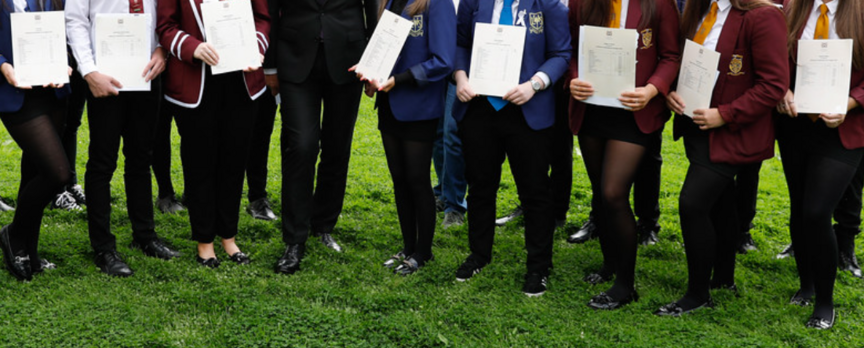
We need to understand how results from 2020 and 2021 will be compared with other years. The Committee recognises results young people achieved in 2020 and 2021 were hard earned, deserved and fully merited. A key metric which enables the performance of the school education system to be assessed over time is attainment data. The Committee notes that the 2022 National Improvement Framework states— “The National Qualification results in 2020 and 2021 provide an accurate picture of the qualifications awarded to learners in those years. Comparisons with previous and future years is possible, provided it is done with an understanding of the different underlying assessment methodologies”. The Committee asks for guidance from the Scottish Government on how such a comparative assessment would be undertaken. (Image sourced from Scottish Government under Creative Commons License: Original Image: https://www.flickr.com/photos/26320652@N02/48471654376)
It will be challenging to compare academic results from 2020 and 2021 with previous years. How can trends be established when the approach was so different? Approaches to assessment were modified in relation to the challenges experienced by young people during COVID-19 - so will comparisons be reliable and equitable (when certain schools and LAs took different approaches to unclear SQA guidance)? SG will need to issue clear guidance or accept these results as standalone.
schools and years are so different anyway that the experience and results would be different too.
These should not be compared as it is totally different levels.
What a shambles this has been - thank goodness a new system will be set up
My child with additional support needs received no help and support during lockdowns and restrictions, working from home alone compared with the additional support she would normally have if in school. How can it ever be fair on her to sit an exam in this scenario. She has lost all confidence in herself and has written herself off as have the school it appears
This is a really difficult one. Yes, the results are an accurate picture of the results earned in those years. However, how do you compare very different systems and very different contexts. The mental health, physical and emotional resilience, resources and expectations from families and society are all different. The best analogy for me would be to try and compare how we coped during a war - would we really use the same measurement tool?
Do we need to compare? If people go for university/jobs, surely the circumstances will be considered too? Grades went up overall in state schools - but not as much as in private/independent schools where it was found they had ‘gamed’ the system (no surprise) https://www.theguardian.com/education/2022/feb/06/labour-seeks-inquiry-into-huge-jump-in-top-grade-a-levels-at-private-schools - focus should be on the inequity there.
What matters is how the marketplace/further education view the results and that will not happen ‘with an understanding of methodologies’.
I’m not sure how these years exam results can be compared to others. I’m not sure a clear and standardised assessment process was used therefore there will always to doubt over the validity of the results.
This content is created by the open source Your Priorities citizen engagement platform designed by the non profit Citizens Foundation